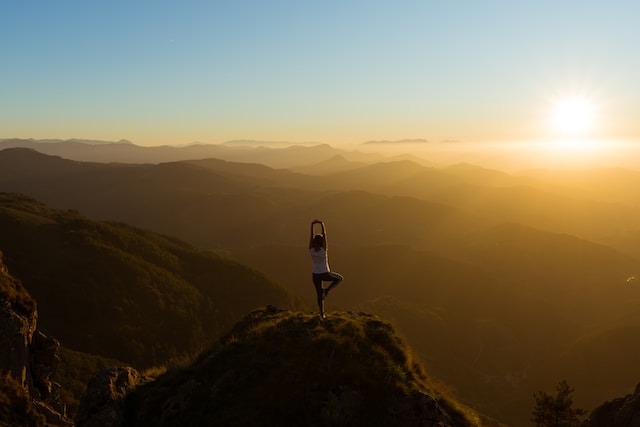Reconnecting with Ourselves – Transforming fear to love
And God said “love your enemy”,
-Khalil Gibran
And I obeyed and loved myself.
Story continued: After the burnout, Khanif realized they could not continue down the same path. They had no idea what to do but were sick of living in fear. They decided to take a year off from work and embark on a journey of self-discovery and healing. But the old nemesis, social anxiety, came back with a vengeance, making it difficult for them to connect with people while traveling. Sometimes, they would meet fellow travellers and enjoy spending time with them which brought them joy. Other times, they felt too afraid approaching people alone and could quickly get into old patterns of isolation, sitting in a hotel room watching movies or keep moving from one place to the other without making commitments. With time, Khanif discovered that they had unwittingly made a promise to themselves years ago – to never truly let anyone in due to the fear of rejection. Luckily, Khanif came across potent tools in their journey, Yoga and Somatic Experiencing, that helped them understand their nervous system and reboot it to a less activated steady state.

In the depths of social anxiety, we often find ourselves disconnected from the most important relationship we´ll ever have – the one with ourselves. Anxiety, fuelled by fear and self-doubt, can push us further away from the very source of healing and resilience we need. But the journey to overcoming social anxiety begins with nurturing this self-connection.
Fear creates disconnection, not just from others but from ourselves as well. It´s that nagging feeling that tells us we´re not good enough, that we´ll be judged, that we´re fundamentally flawed. But here’s the secret to combating anxiety: we change our approach from one rooted in fear to one that nurtures self-care and a sense of safety in our own bodies.
Various modalities offer effective ways to become aware of the symptoms of anxiety and calm down the nervous system. Yoga, with its focus on breathing and body awareness, can help ground us in the present moment, reducing the intensity of anxiety. Somatic Experiencing, a therapeutic approach developed by Peter Levine, allows us to explore and release stored tension in the body, promoting a more regulated nervous system. Meditation, mindfulness practices, and deep breathing exercises are also powerful tools to cultivate awareness, manage anxiety symptoms, and foster a sense of inner calm. These modalities, when integrated into our daily routines, can be transformative in our journey towards overcoming social anxiety and reconnecting with ourselves.
Each friend represents a world in us,
-Anais Nin
a world possibly not born until they arrive,
and it is only by this meeting that
a new world is born.
Creating Authentic Friendships and Connections
Story continued: Khanif just came out of a long yoga retreat and has been feeling comfortable with the group. They talked about going out for dinner, yet many of them cancelled at the last minute. The dinner was still on, though with lots of new people joining, something that sparked anxiety in Khanif. Suddenly thoughts of meeting new people got them anxious and pondering about not showing up. Khanif remembered the self-compassion practices they recently added to their tool kit and decided to try it out. They recognised that this is a moment of suffering, that many people feel anxious, and stay with the sensations in the body instead of getting sucked into the negative thought spiral. When their nervous system relaxed, Khanif felt hopeful as they realised that their inner child who used to get paralyzed by social anxiety now has the support of their adult self and all the tools they have learned. Feeling safe, they decided to join the dinner as their need to connect with others was their primary focus now.
The path to overcoming social anxiety is about unlearning the misbeliefs that social interactions are inherently dangerous, that people constantly evaluate us negatively, or that we must conform to societal expectations. Start by challenging these misbeliefs. Recognise that the fear of negative evaluation, for example, is a common symptom of anxiety, but it is not a reflection of reality. Most people are far less judgemental than we assume and probably, just like Khanif, they have their own insecurities and imperfections too. Understanding this helps dismantle the illusion of constant scrutiny.
Start small, but start
Creating relationships does not mean diving headfirst into large social gatherings. Start small. Seek out situations where you can connect with like-minded individuals or engage in activities you genuinely enjoy. Whether it’s joining a book club, attending a local art class, or volunteering for a cause you’re passionate about, these smaller, more comfortable settings can be the perfect steppingstones.
Consider seeking the guidance of a therapist experienced in treating anxiety so they can provide you with tailored strategies and a safe space to explore and overcome the challenges you face.
In conclusion, creating relationships when you have social anxiety is not about changing who you are but rediscovering and embracing your authentic self. By practicing mindfulness, re-establishing safety in your body, and challenging misbeliefs you can pave the way for meaningful connections that enrich your life and support your personal growth. Remember, you are worthy of love and connection.
Main – Photo by Alex Green


